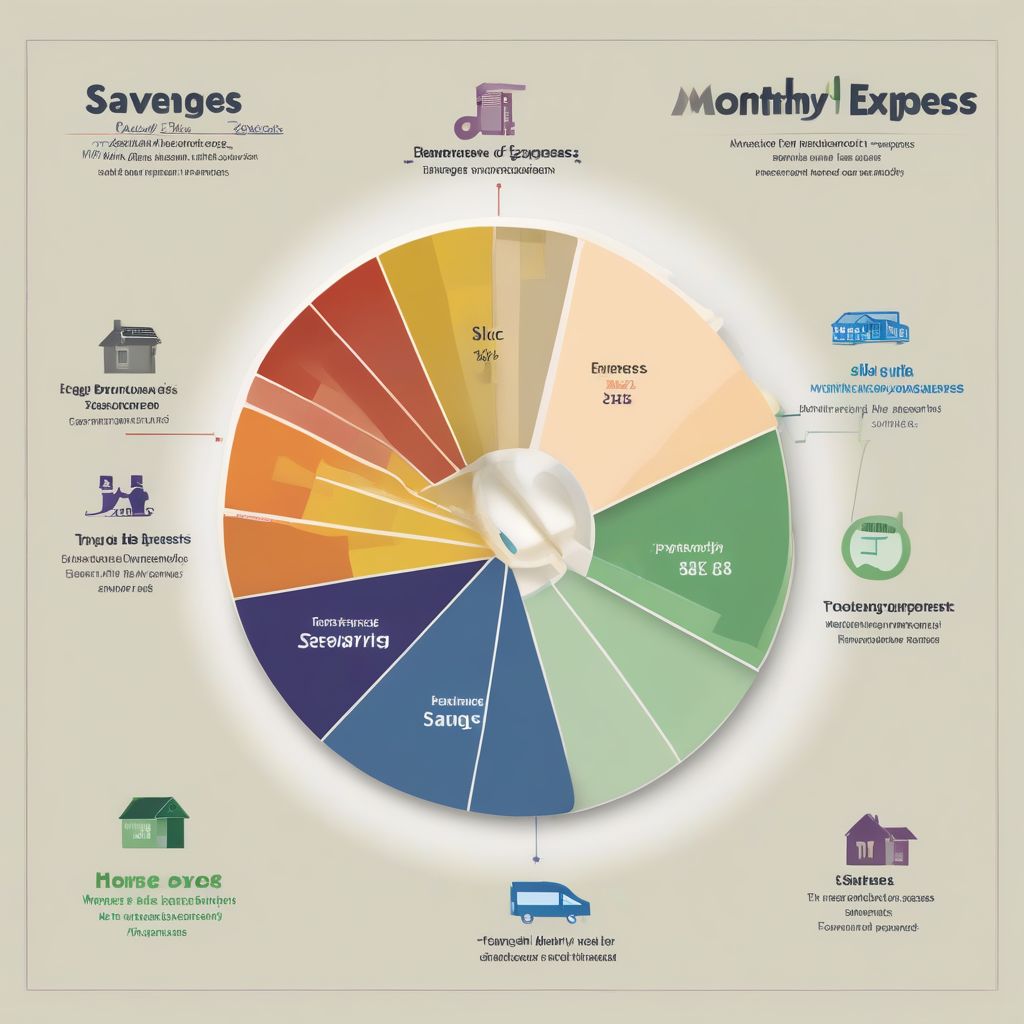Have you ever felt like you’re constantly chasing your financial tail, working hard but never quite reaching your financial goals? Do you dream of finally having control over your money and achieving financial freedom? You’re not alone! Many people struggle with budgeting, especially when starting. But what if I told you that budgeting doesn’t have to be a chore? In fact, it can be the key to unlocking your financial potential and living a more fulfilling life!
This beginner’s guide will walk you through simple and effective budgeting strategies, empowering you to take charge of your finances and pave the way toward a brighter financial future.
Understanding Your Current Financial Situation
Before you can start budgeting, you need to understand where your money is going right now.
Track Your Income and Expenses
- Record all sources of income: This includes your salary, wages, side hustle income, and any other regular income streams.
- Track every expense: Keep a record of every dollar you spend for a month. This can be done using a notebook, a spreadsheet, or a budgeting app.
Pro Tip: Many banks offer free expense tracking tools within their mobile banking apps.
Categorize Your Spending
Once you have a clear picture of your income and expenses, categorize your spending to see where your money goes each month. Common categories include:
- Housing: Rent or mortgage payments, property taxes, utilities.
- Transportation: Car payments, gas, public transportation, insurance.
- Food: Groceries, dining out, takeout.
- Entertainment: Movies, concerts, hobbies.
- Debt payments: Credit card bills, student loans, personal loans.
- Savings: Emergency fund, retirement contributions, other savings goals.
Expert Insight: “By understanding your spending patterns, you can identify areas where you can cut back and save more effectively,” says David Bach, author of “The Automatic Millionaire.”
 Budgeting for Beginners Pie Chart
Budgeting for Beginners Pie Chart
Creating Your First Budget
Now that you have a good grasp of your finances, it’s time to create a budget that works for you.
The 50/30/20 Rule
A popular budgeting method is the 50/30/20 rule, where you allocate:
- 50% of your after-tax income to needs: Essential expenses like housing, transportation, groceries, and utilities.
- 30% to wants: Non-essential expenses like entertainment, dining out, and shopping.
- 20% to savings and debt repayment: This includes building an emergency fund, saving for retirement, and paying down debt.
Set Realistic Goals
When creating your budget, be realistic about your income and expenses. Don’t try to cut back too much too soon, as this can lead to frustration and failure.
Make Adjustments as Needed
Your budget is a living document, and it’s okay to make adjustments along the way. Life changes, and your budget should reflect those changes.
Tips for Budgeting Success
Here are some additional tips to help you succeed with budgeting:
- Automate your savings: Set up automatic transfers to your savings account each month.
- Negotiate lower bills: Contact your service providers (internet, cable, phone) to negotiate lower rates.
- Find free or low-cost entertainment: Explore free activities in your community, like parks, museums, and libraries.
- Meal prep to save money on food: Planning your meals in advance can help you avoid costly last-minute takeout.
- Use cash envelopes for discretionary spending: Allocate a specific amount of cash to categories like entertainment or dining out, and once the cash is gone, you’re done spending in that category for the month.
Remember: “Budgeting is not about limiting your freedom; it’s about gaining control of your finances and achieving your financial dreams,” says financial expert Suze Orman.
Budgeting Tools and Resources
There are many helpful tools and resources available to make budgeting easier:
- Budgeting Apps: Mint, YNAB (You Need a Budget), Personal Capital, EveryDollar.
- Spreadsheets: Create your own customized budget using programs like Microsoft Excel or Google Sheets.
- Financial Websites and Blogs: NerdWallet, The Balance, Investopedia.
Conclusion: Take Control and Achieve Financial Freedom
Budgeting might seem daunting at first, but it’s a powerful tool that can empower you to take control of your money, achieve your financial goals, and live a more secure and fulfilling life. Remember to be patient with yourself, celebrate your successes, and don’t be afraid to seek help from financial professionals if needed. Start small, stay consistent, and watch your financial dreams become a reality!
Now, it’s your turn! What are your biggest budgeting challenges, and how can you use the tips and resources in this guide to overcome them? Share your thoughts in the comments below!
[amazon bestseller=”budgeting books”]
